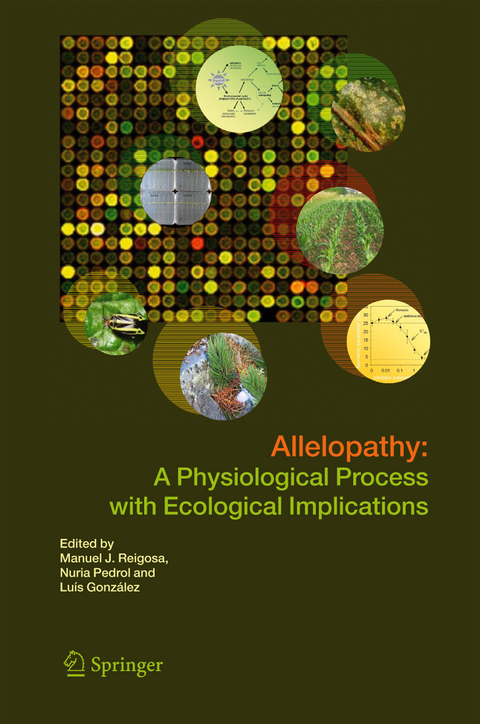
Allelopathy
Springer (Verlag)
978-90-481-7095-1 (ISBN)
General.- to allelopathy.- Basic pathways for the origin of allelopathic compounds.- Methodological Aspects.- Clues in the search for new herbicides.- Distinguishing allelopathy from resource competition: the role of density.- Toxicity in allelopathy: In Silico Approach.- Physiological Aspects of Allelopathy.- Allelochemicals and photosynthesis.- Cell cycle analyses for understanding growth inhibition.- Detoxification of allelochemicals-The case of bezoxazolin-2(3H)-one(BOA).- Allelopathy and abiotic stress.- Allelopathy and biotic stresses.- Plant secondary metabolites.Targets and mechanisms of allelopathy.- Mitochondria as a site of allelochemical action.- Ecophysiology and Allelopathy.- Weed germination,seedling growth and theirlesson for allelopathy in agriculture.- Allelopathy: A soil system perspective.- Microorganisms and allelopathy: A one-sided approach.- Ecological Aspects of Allelopathy.- Ecological relationships and Allelopathy.- Resistance and susceptibility of plant communities to invasion:revisiting Rabotnov's ideas about community homestasis.- Allelopathy in Different Environments.- Allelopathy in marine ecosystems.- Allelopathy in aquatic environments.- Forest ecosystems and allelopathy.- Allelopathic interactions in agroecosystems.- Applied Apsects of Allelopathy.- Playing with chemistry: studies on Orobanche spp. Germination stimulants.- Modes of action of phytotoxins from plants.- Allelopathy in ecological sustainable agriculture.- Parasitic weeds and allelopathy:from the hypothesis to the proofs.
| Erscheint lt. Verlag | 19.10.2010 |
|---|---|
| Zusatzinfo | XIV, 638 p. |
| Verlagsort | Dordrecht |
| Sprache | englisch |
| Themenwelt | Naturwissenschaften ► Biologie ► Botanik |
| Naturwissenschaften ► Biologie ► Ökologie / Naturschutz | |
| Naturwissenschaften ► Chemie ► Organische Chemie | |
| Weitere Fachgebiete ► Land- / Forstwirtschaft / Fischerei | |
| ISBN-10 | 90-481-7095-8 / 9048170958 |
| ISBN-13 | 978-90-481-7095-1 / 9789048170951 |
| Zustand | Neuware |
| Haben Sie eine Frage zum Produkt? |
aus dem Bereich


